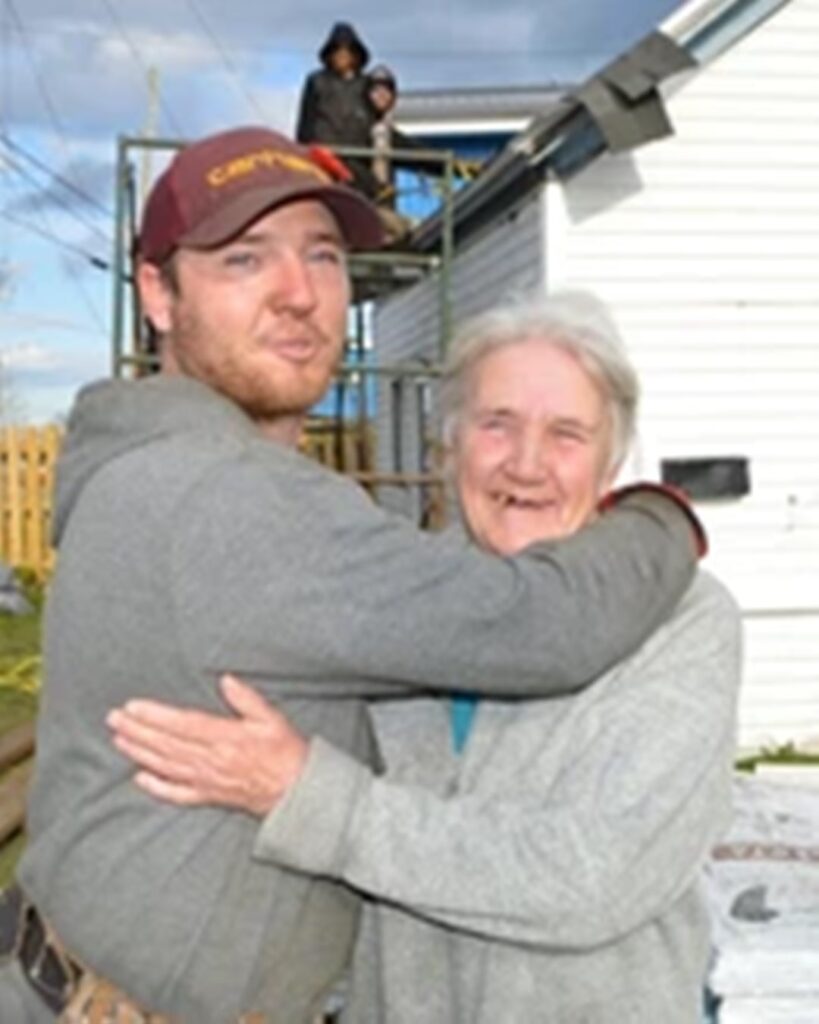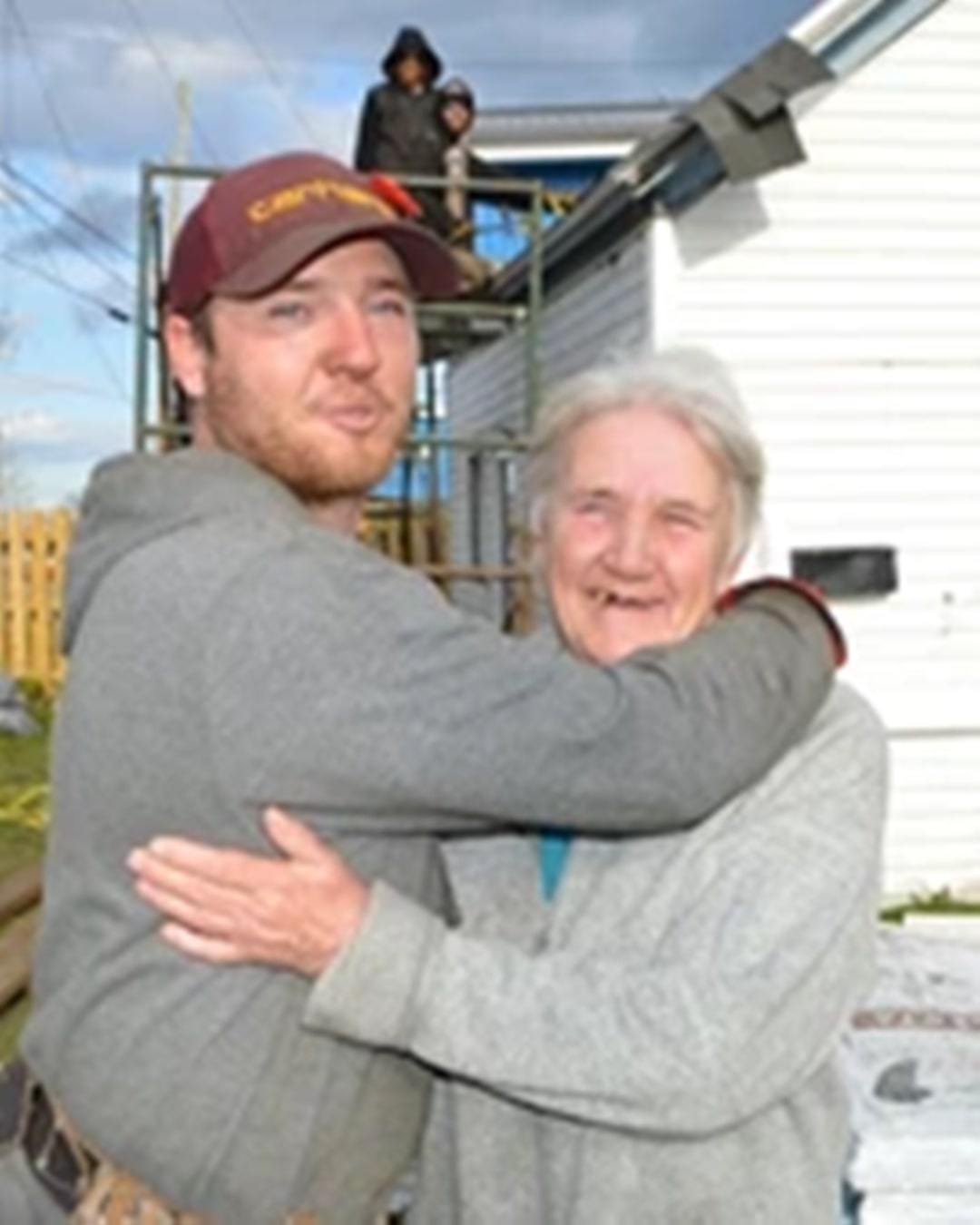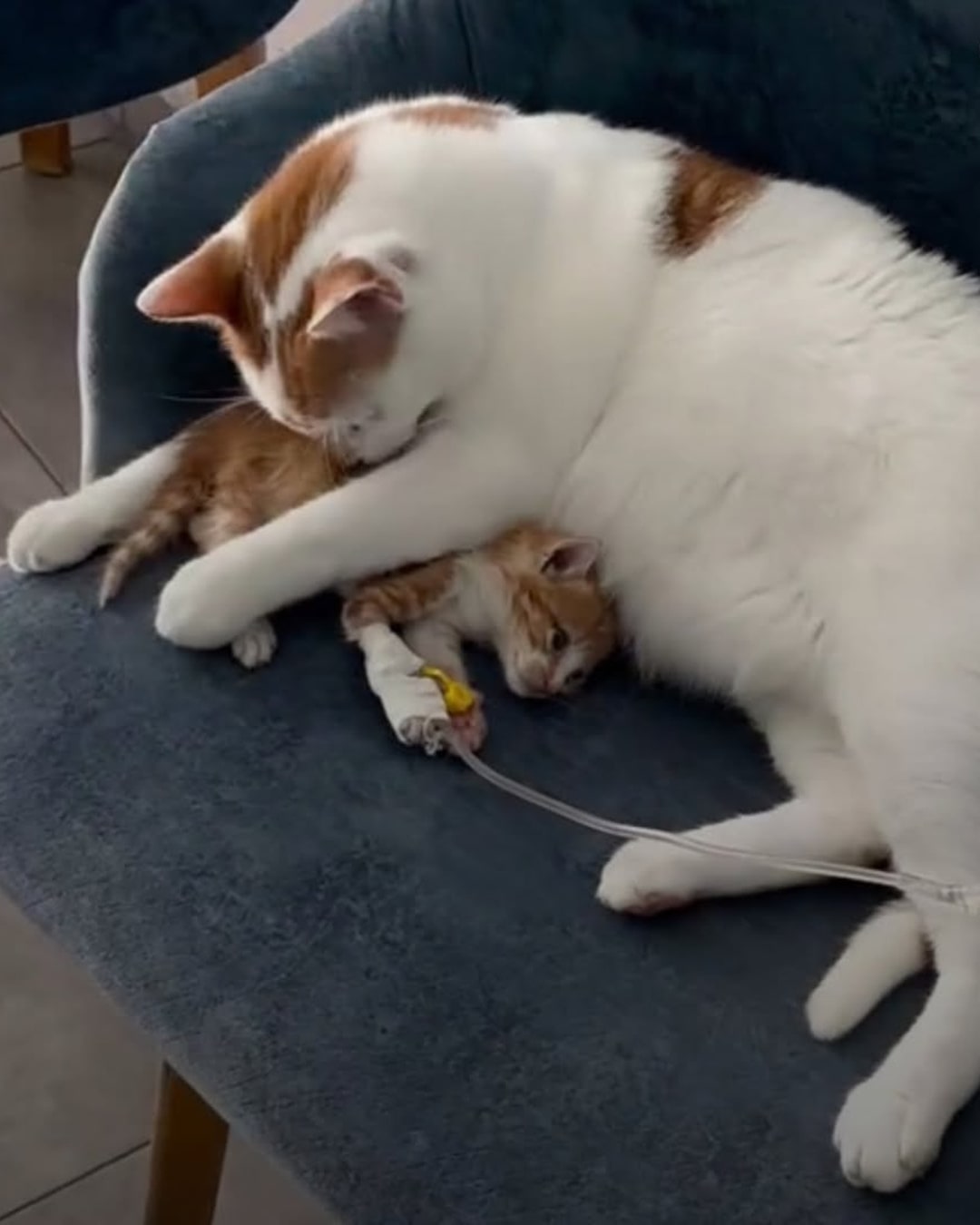Every town has its quiet heroes. In Nova Scotia, that hero is Jeremy Locke, a roofing contractor who noticed the crumbling roof of grandmother Jeanette MacDonald.
He offered to fix it for free, but Jeanette refused—she didn’t want charity, only to pay her way once a grant was approved. But months passed, the roof worsened, and Jeremy knew he couldn’t wait any longer.
So, he created a “raffle” for a free roof and encouraged Jeanette to enter. What she didn’t know was hers was the only ticket. Jeremy and his crew then donated their time and labor, giving her a brand-new $9,000 roof—completely free.
With tears in her eyes, Jeanette called him her “guardian angel.” Jeremy simply said he was doing the right thing.
This single act of profound kindness in a small Nova Scotia community resonates far beyond the installation of a new roof. It delves into the very essence of what it means to be a neighbor, a community member, and a decent human being. Jeremy Locke’s story is not just about generosity; it is a powerful lesson in empathy and the preservation of dignity. In a world that often measures value in dollars and transactions, Locke’s creative solution reminds us that the most valuable gifts are those given with true understanding of the recipient’s spirit. He recognized that for Jeanette MacDonald, accepting a handout would feel like a loss of independence, a surrender to circumstance. Her desire to pay her way was a testament to a lifetime of self-reliance, and to simply ignore that would have been to disrespect the very character he sought to help.
The genius of the raffle was its compassionate deception. It was a carefully constructed bridge across the chasm of pride that so often prevents those in need from accepting help. By framing the gift as a stroke of luck, a prize won, Locke offered Jeanette a way to receive the critical help she needed without compromising her integrity. This thoughtful approach transforms the narrative from a simple story of charity into a masterclass in emotional intelligence. It underscores a crucial truth: how we give is often just as important as what we give. The new roof protected her home from the elements, but the manner in which it was given protected her heart from the potential shame of dependency. This roofing contractor from Nova Scotia wasn’t just fixing a physical structure; he was mending the quiet fractures that hardship can create in a person’s soul.
Acts like these are the threads that weave the fabric of a community together. In an age of digital disconnection and social isolation, the story of Jeremy Locke and Jeanette MacDonald serves as a powerful antidote. It highlights the irreplaceable role that local businesses and tradespeople play in the health of a town. Locke is not a faceless corporation; he is a local contractor who sees the people of his community not just as clients, but as neighbors. His investment was not merely in materials and labor, but in the well-being of the place he calls home. This kind of local heroism inspires a ripple effect. When one person steps up to “do the right thing,” it gives others permission and encouragement to do the same. It sets a new standard for neighborliness, prompting others to look around and ask themselves, “Who in my community needs help, and how can I offer it in a way that uplifts them?”
The story also casts a subtle light on a larger societal issue: the vulnerability of our elderly population. Jeanette MacDonald’s predicament, waiting months for a grant to approve essential repairs, is a reality for countless seniors living on fixed incomes. They often face a difficult choice between maintaining their homes and affording other necessities like food and medicine. Bureaucratic delays and insufficient support systems can leave vulnerable individuals in precarious situations, with their homes and health deteriorating while they wait for help to navigate a complex system. Jeremy Locke’s intervention was a beautiful act of individual responsibility, but it also serves as a poignant reminder that community support and individual kindness are crucial backstops where official systems may fall short. He saw a gap and chose to fill it, demonstrating that compassion does not need to wait for paperwork to be processed.
What truly defines a hero is not a single grand gesture, but the character that fuels it. Jeremy Locke’s simple explanation—that he was just “doing the right thing”—speaks volumes. It reflects a moral compass guided by principle rather than a desire for recognition. These are the quiet heroes who are the bedrock of our society. They are the ones who stop on the side of the road, who pay for a stranger’s groceries, who mow their elderly neighbor’s lawn without being asked. They operate not for applause or social media praise, but from a deep-seated sense of shared humanity. Their actions are a testament to the idea that a single person has the power to create significant, positive change in another’s life. Locke and his crew at Locke’s Roofing didn’t just donate a $9,000 roof; they donated their time, their skill, and their energy, a personal sacrifice that makes the gift all the more meaningful.
Ultimately, the legacy of this story from Nova Scotia is a powerful call to action for all of us. It challenges us to look beyond the surface of our daily interactions and to see the unspoken needs of those around us. It encourages us to think creatively and compassionately when we offer help, always considering the dignity and feelings of the person we are assisting. The tale of the one-ticket raffle is more than just a heartwarming news item; it is a practical blueprint for building a better, kinder world. It begins not with grand ambitions, but with the simple act of noticing—truly noticing—the person next door. The greatest takeaway from Jeremy Locke’s inspirational deed is that everyone has something to give, and the most impactful gifts are wrapped in respect, understanding, and a genuine desire to uplift the human spirit. He provided shelter from the rain, and in doing so, showered an entire community with a lesson in grace.

Every town has its quiet heroes. In Nova Scotia, that hero is Jeremy Locke, a roofing contractor who noticed the crumbling roof of grandmother Jeanette MacDonald. He offered to fix it for free, but Jeanette refused—she didn’t want charity, only to pay her way once a grant was approved. But months passed, the roof worsened, and Jeremy knew he couldn’t wait any longer. So, he created a “raffle” for a free roof and encouraged Jeanette to enter. What she didn’t know was hers was the only ticket. Jeremy and his crew then donated their time and labor, giving her a brand-new $9,000 roof—completely free. With tears in her eyes, Jeanette called him her “guardian angel.” Jeremy simply said he was doing the right thing.














